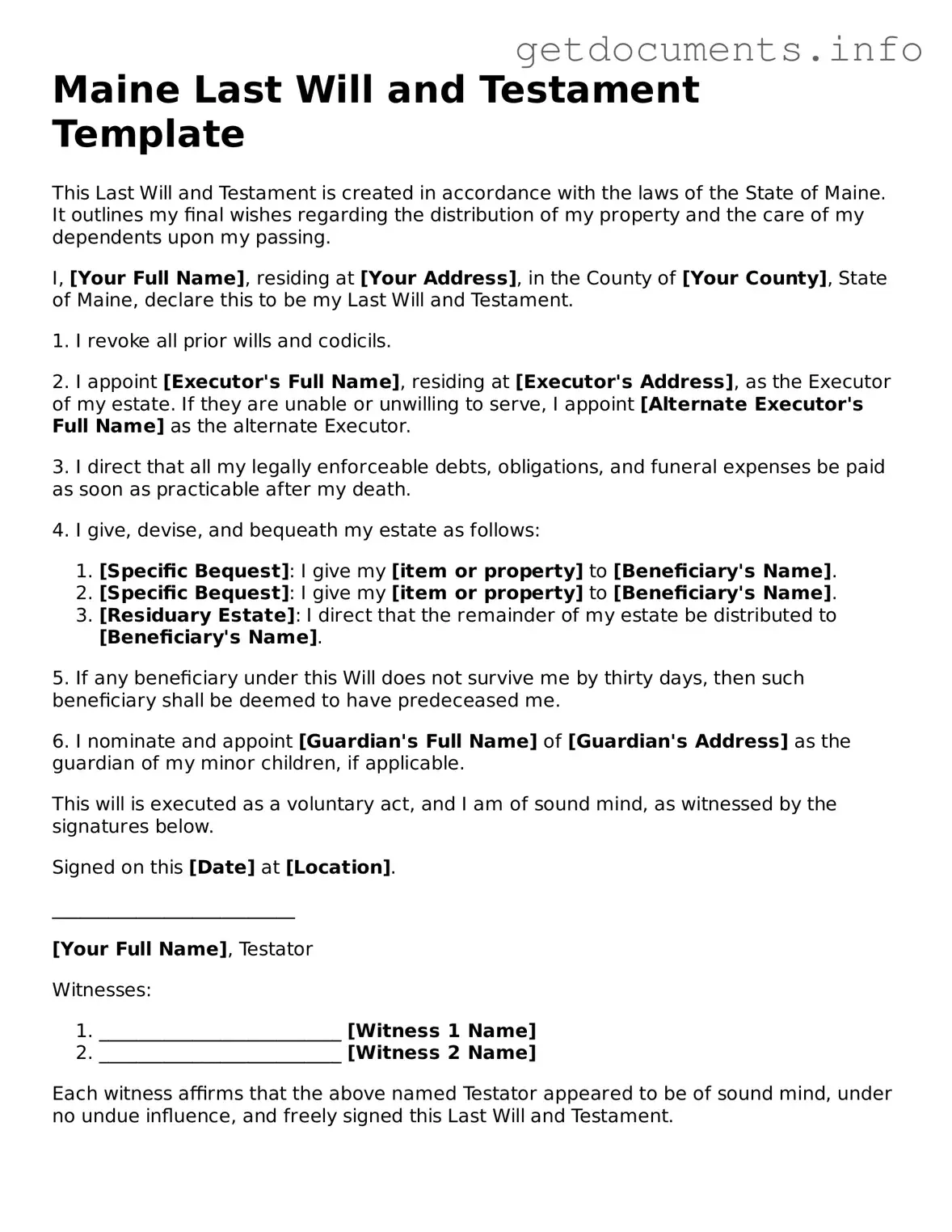Free Last Will and Testament Template for Maine
A Last Will and Testament is a legal document that outlines how a person's assets and responsibilities should be handled after their death. In Maine, this form allows individuals to specify their wishes regarding the distribution of their property, guardianship of minor children, and other important matters. Understanding how to properly fill out this form is essential for ensuring that your wishes are honored.
Ready to take the next step? Fill out the form by clicking the button below.
Access Last Will and Testament Editor

Free Last Will and Testament Template for Maine
Access Last Will and Testament Editor
Got places to be? Complete the form fast
Fill out Last Will and Testament online and avoid printing or scanning.
Access Last Will and Testament Editor
or
⇩ PDF File
